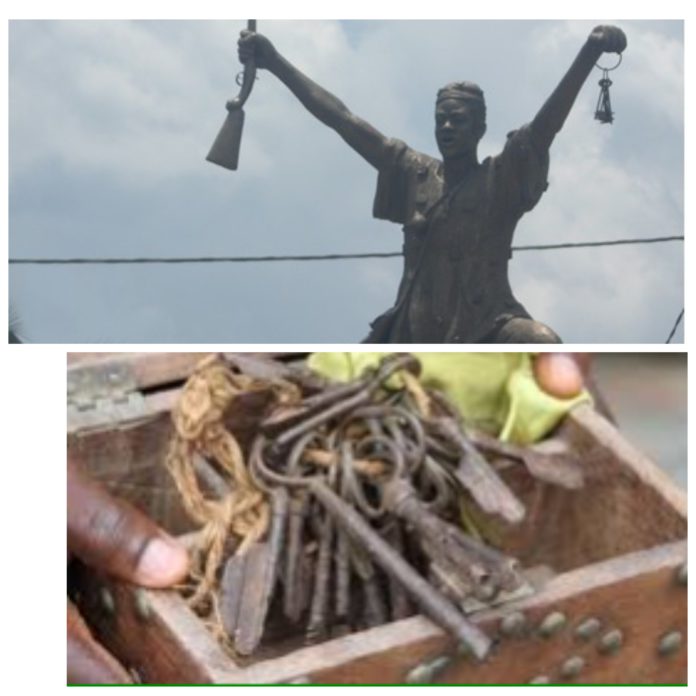Nana Asamani, revered as the first black Governor of Christiansborg Castle in Osu, Accra, left an indelible mark on history with his daring feats and astute business acumen.
As the Akwamuhene, he orchestrated a cunning scheme in 1693, outmaneuvering the Danes and seizing control of Christiansborg Castle.
Employing shrewd tactics, Asamani negotiated the castle’s return to Danish hands in 1694, pocketing 50 marks of gold in the process.
Remarkably, he retained possession of the castle keys following the transaction, solidifying his legacy as a masterful strategist.

Beyond his exploits at Christiansborg Castle, Asamani thrived as a prominent figure in Accra’s trade landscape, fostering alliances between the Danes, Ga-Adangbe people, and Akwamu traders.
His proficiency in the Danish language and adept disguise as a cook and interpreter facilitated his infiltration of the castle, enabling him to meticulously study its operations and inhabitants.
In a bold move, Asamani and 80 armed men, disguised as traders, infiltrated the castle under the guise of inspecting merchandise.
Seizing the opportunity, they unleashed a surprise attack on the unsuspecting Danes, wresting control of the stronghold after a fierce battle. Asamani’s leadership saw the installation of the Akwamu flag, symbolizing their triumph over colonial forces.
Despite relinquishing control of Christiansborg Castle to the Danes, Asamani’s legacy endures through the enduring possession of its keys by the Akwamu people.
These keys serve as a poignant reminder of their defiance against colonial oppression, cherished as a symbol of resilience and pride.
Today, the castle stands as a testament to Ghana’s rich history, having served as the residence of its first president, Kwame Nkrumah, following the country’s attainment of republic status in 1960.
Ghana Month on Adom is sponsored by Nkulenu Industries, Tostaty Tom, Franko Trading Enterprise, and Obuase Bitters.

